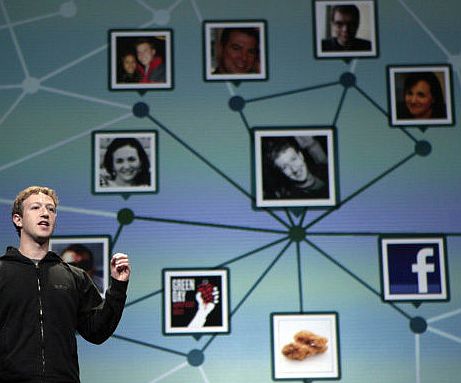

Facebook announced on 8 July that it’s readying to roll out the Graph Search function that it introduced in January and offered in beta form to “tens of millions” of users, who have already helped to improve it.
Graph Search will roll out to everyone who uses “US English” over the next few weeks, said Facebook.
Unlike traditional search tools, Graph Search fetches everything that the user has personally touched or shared or “Liked”. These can be links, images, documents or friends.
If you search “photos of New York City”, you’ll see photos your friends took and shared, as well as Public photos. The same search will yield different results for different users, given they have different friends.
“We look at this as the third main pillar in our business up to this point,” Facebook chief executive Mark Zuckerberg said during a 15 January press event, introducing the technology.
“We have Newsfeed, for connecting with the people around you. We have Timeline, which tells us the history of the people around you. And now we have Graph Search, which will tie everything together and answer questions directly, in real time.”
In its 8 July blog post, Facebook said that since January, the speed of Graph Search has been improved, thanks to early user feedback, and so has “query understanding” – the software now understands more ways of asking a question.
It also does a better job of showing the most relevant results first, and the search box has been made easier to see and use.
“As Graph Search rolls out more widely, everyone on Facebook will see a notice on their home page with a reminder about how to control what they share and with whom,” the post added. “This follows a similar notice in December that highlighted new privacy tools to help people manage what they share on Facebook.”
Days after Facebook’s January announcement, Microsoft announced that its Bing search engine was also becoming more socially savvy. Bing’s social sidebar now integrates more Facebook data into results.
Bing Programme Manager Nektarios Ioannides explained in a 10 May blog post, “Let’s say I’m searching for Beyonce tickets. … I can see that my friend has recently posted that she has an extra ticket to the show. Now, without leaving the Bing results page, I can comment directly to her post letting her know that I’d like to join her for the concert.”
Enterprises are also benefiting from the ability to connect people and the information they’re closely related to.
For example, Telco Telenor is using graph search technology to deliver appropriate services to the right clients in real time, T-Mobile is using it to reply in real time to millions of fans during sporting events, and Glassdoor is using it to link job seekers with opportunities at the organisations their friends and friends-of-friends work at.
Introducing Graph Search, Zuckerberg called it “one of the coolest things we’ve developed in a while”.
Are you a Google expert? Take our quiz!
Originally published on eWeek.
Pebble creator launches two new PebbleOS-based smartwatches with 30-day battery life, e-ink screens after OS…
Amazon loses appeal in Luxembourg's administrative court over 746m euro GDPR fine related to use…
Nvidia, xAI to participate in project backed by BlackRock, Microsoft to invest $100bn in AI…
Google agrees to pay $28m to settle claims it offered higher pay and more opportunities…
Chinese social media giant Tencent triples capital expenditure on AI data centres and other areas…
EU gives Apple demands for third-party developer access to iOS features and greater responsiveness in…